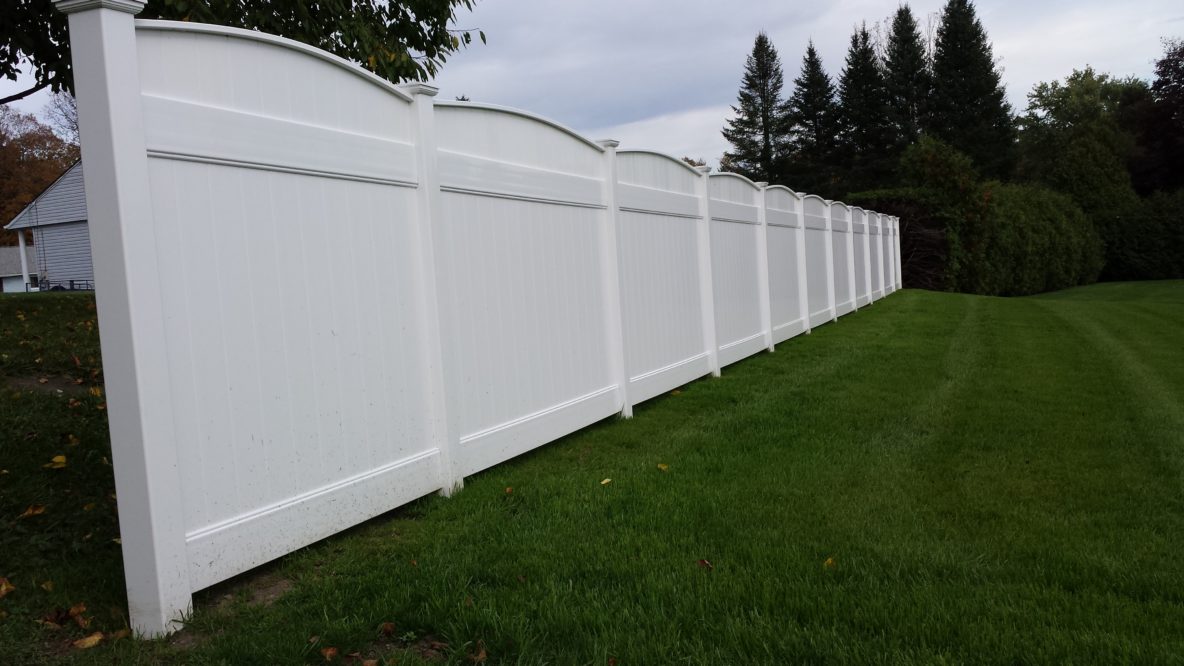Homeowners install vinyl fencing because of the low maintenance, but low maintenance does not mean dirt-free. You’ll usually find yourself fighting natural discoloring from dirt but you may occasionally experience a couple other issues. Mold and mildew can collect even on non-porous vinyl fencing, depending on moisture. Also, if you are a parent or pet owner you may have occasional scuffs from normal wear and tear. Generally speaking though, vinyl fencing is easy to clean.
Reminders when it comes time to clean your vinyl fence
Routine maintenance to clean your vinyl fence
Your vinyl fence is like anything you own, you should regularly clean your vinyl fence to keep it looking new. For the general cleaning of a fence installation, you only need a garden hose and rinse the fence with water. For heavier buildups of mud or dust, you can use a pressure washer on a low setting (Don’t exceed 1,200-1,500 PSI).
Clean your fence of mold and mildew
Mold and mildew will easily grow on vinyl fencing. Harsh chemicals, like bleach, can harm your fence so opt for earth-friendly, biodegradable solutions. Fill a bucket partially with water, in a separate container mix together 2 cups of soap and a ½ cup of white vinegar. This should naturally kill mold and mildew. Add 2 teaspoons of the soapy solution to the water, dip a rag in the mixture, and gently scrub off the mold and mildew.
Clean your fence of scuff marks
Tires, sneakers and any rubber surface can leave scuff marks on vinyl fencing. Oddly enough the solution to this is as simple as grabbing a wedge-shaped pencil eraser. Rub the eraser over the scuff mark as if you were erasing something you wrote with a pencil. If the mark is stubborn, you can try using paint thinner and a rag, but use this cautiously and wear protective gloves and safety goggles.
Clean your vinyl fence of hard water stains
No matter the type of fence installation, Salem homes all suffer the consequences of Oregon’s rain, which can cause both rust and hard water stains. To remove these types of stains, spray white vinegar onto the affected areas and rub with a soft cloth, applying light pressure. Repeat this process until the stains disappear.
Before you go out and purchase commercial fence cleaners, look in your pantry. You may find you already have the solution for cleaning your vinyl fencing. Clean your fences regularly, at least once or twice a year to keep dirt and stains from becoming major and difficult to remove.
If mold and mildew are a common problems on your vinyl fencing use bleach to remove these stains and prevent future growth.

